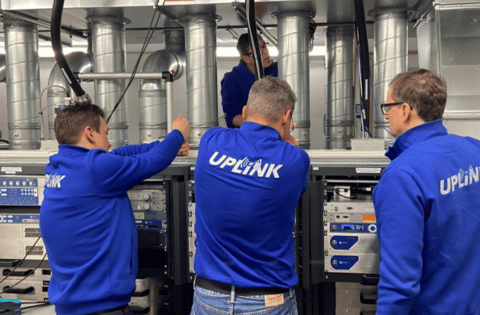RW: What stations are served by this rollout?
Thomas Weiner: Uplink Group is the market leader for FM broadcasting in Germany and supplies about 50% of
the private and a large portion of the public broadcasters. We operate almost 900 FM frequencies at approximately 600 locations; among them are all large radio towers in Germany, e.g. in Berlin, Munich, Hamburg, Stuttgart, Düsseldorf etc.
We run those FM frequencies exclusively with transmitters from French producer WorldCast Systems, ranging from 100 to 10,000 watts transmission energy. They serve private radio groups such as Regiocast Group, TopRadio Group, Hit Radio FFH, Radio NRW, ATSW Group, Metropol FM, Schlager Radio and others, as well as public radio entities like DeutschlandRadio, NDR-MV, RBB, SR, WDR and Thüringer Landesmedienanstalt.




